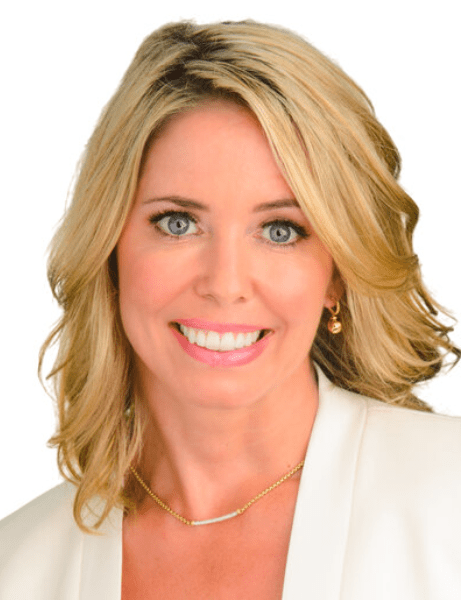Let’s Talk about How to Get Rich When You’re Young
Almost everyone would like to be rich. And most young people would agree that getting rich by 35 sounds great!
But are you willing to do what it takes to be rich by 35? In this post, I’ll cover the key steps required to grow your wealth so you’re rich well before retirement.
Written By Tiffany Woodfield, Financial Advisor, TEP®, CRPC®, CIM®

What does it mean to you to be rich?
Before you can understand how to be rich by age 35, you must identify what “being rich” means to you. If you asked a room full of people what being rich means, they would likely have different answers.
Some of the common answers to this question are:
- You have enough money that you don’t have to worry about what you spend.
- Being able to retire before age 40.
- Having enough money that you can stop working.
- Having the opportunity to follow your dreams.
- Having a fulfilled life with love, family and friends.
- Being debt-free.
- Being content and at peace.
- Having x amount in savings and investments.
Remember, identifying with your goal of being rich has intrinsic value and motivates you to work towards this.
My favourite definition of being rich is one said by Jim Mott, “You can be rich by having more than you need or by needing less than you have.”

You can be rich by having more than you need or by needing less than you have.
-Jim Mott
Where should I start if I want to be rich by 35?
If you want to be rich by age 35, write down your goal and keep it in a place you see every day. Writing your goal down and reviewing it will keep you laser-focused by constantly reminding you to make decisions that move you closer to this goal.
You will likely need to change your lifestyle by saying no to things in the short term that may provide instant gratification but don’t serve you in the future. Your focus should be on your destination and the long term.
You need to understand where every dollar goes in a month and have it categorized as needs, wants or savings. By tracking your money, you won’t participate in mindless spending where you reach the end of the month thinking, “I don’t know where my money went.” Your spending is now conscious and strategic.
Pay off debt, especially credit card debt, before you purchase anything from your “wants.” Then, you can save and add in a few wants if they fit your budget.
You must understand how much you earn and live below your means to save more and take advantage of compounding when investing. When you know your numbers you will turn down opportunities and temptations to spend money today so that you can save more.
“Slow and steady wins the race.”
Don’t be afraid to budget or invest. These are not scary words and help you create success. Also, you don’t need to be a financial guru to start investing. If you have a company employee plan, contribute to this; often, they have a matching opportunity. Ask your employer about this option.
Look for opportunities to create value and earn more. You could do this through a promotion, a raise, a second job, or starting a small business.
Choose friends and mentors who understand and will support you with your goal. It is much easier to say to someone, “I am not going to go on that trip because I am working towards a larger goal,” if they also understand. Mentors and wealth coaches can help because they provide a sounding board and coaching strategies to help you stay on course.

How can I increase my income significantly in my 20s and 30s?
To increase your income significantly, you must be ready to make sacrifices. Here are some steps you can follow.
1 – Decide on your non-negotiables.
To start this process, you need to understand what you value most to decide what you are willing to give up, where you want to invest more time, and what are non-negotiables. Assessing your situation will help you to stay on track for the long term and be less likely to feel deprived because you know what you value.
Get a pen and paper and set out your categories. Then, determine the priority and goals of each category.
For example, if you want to increase your income significantly, career/money is likely your #1 priority.
Then consider what focusing on one category significantly will “cost” you in your life. Ensure that the cost comes from a category you place less value on.
EXAMPLE CATEGORIES:
- Career or Money – earnings and savings goals
- Education
- Health
- Growth and spiritualization
- Relationships
Usually, when we want to increase income, we let our health or fitness and relationships go on the back burner.
Acknowledge this and ensure you have a plan to prevent burn out or health problems.
In addition, it can be helpful to list the most important relationships you want to keep and what health looks like. You can set aside secondary relationships to work more and feel more confident when you say no.
Remember, you only have so much time.
Once you have completed this exercise and have your categories in order by priority, including a few details to identify what is essential, you can move to the next step.
The plan is to create an overall goal to increase your income by how much and set it to a realistic time frame. Brainstorm ways that you can either earn more or save more. You will want to earn passive income on anything you save, so invest it in something where you will not be tempted to take the money out.
2 – Next, create buckets for your savings goal.
If you want to purchase a home, put this money in a separate bucket from the money you set aside to build for investments for the longer term.
When you are young, time is on your side, and you want to take advantage of the “magic” of compounding. Most successful self-made millionaires appreciate and have taken advantage of this opportunity.
3 – Invest in yourself.
If you need more education or another course to help you reach your goal, do it! Or if you need coaching on releasing negative beliefs around money or success, start this process. There are numerous books and podcasts to follow right away. Doing this is time well spent.
4 – Stop comparing yourself to others.
Remember, this is your life and journey. So, fear of missing out isn’t relevant if it isn’t something that you value. You need to be clear on what YOU want. Also, you want to reward yourself along the way and not be so restrictive in your budget that you feel deprived. Remember, it is a balance.
5 – Create a budget.
You want to look at your financial situation to know your starting point. Imagine when you enter a route to your destination into Google Maps. You need a starting point and a destination. So, while it is great to have goals, they must be relevant and reflect where you are now.
6 – Ask for a raise or find ways to earn more.
You could get a side gig or a raise if you have created value at your work. This shows initiative, and even if the answer is no, you could ask if you could earn more or receive a promotion in the future.
Start saving early- the importance of being young means you have time. It can make a huge difference if you start saving at a young age.

What are the best investment strategies for someone young?
Start investing early and take advantage of compounding, which means you earn on your original investment and the returns you receive on this investment. It works when you reinvest your returns directly into your account and allow it to grow.
Don’t try to time the market, which is trying to get the “big win” or catch the latest trend. Timing the market is essentially gambling, and you must be right twice: when you buy and when you sell.
Instead, buy quality companies that will grow long-term and remember to stay invested.
You can purchase a diversified ETF or mutual fund if you don’t have enough money to work with a financial advisor. A mutual fund costs more because a portfolio manager manages it. Once you have accumulated wealth, you can work with your portfolio manager to create an individual portfolio based on your risk profile and goals.
Ride the bumps in the market and stay invested for the long term.
The most significant mistake people make when investing is not being able to manage their emotions when the market goes down, so they panic and sell. Remember, the best days in the market are often right after the worst days, and you don’t want to miss the upside. (+)
You can use “dollar cost strategy,” a term first introduced by Benjamin Graham in his book “The Intelligent Investor.”
This strategy is when you invest the same amount of money in a target security such as a stock, ETF or mutual fund at a set interval, say monthly, regardless of price. Meaning, you set up auto-investing at a regular rate and cadence.
Doing this helps with being able to set it and forget it.

How much should I save each month to be rich by 35?
While everyone has different lifestyles, needs, and wants, a good rule of thumb is the 50/30/20 rule. This rule recommends that 50% of your take-home money go towards needs, 30% towards wants and 20% towards savings or paying off debt.
For example, let’s say your monthly salary is $5000.
Needs: Then $2500 goes towards paying for necessities such as food, lodging, essential clothing and transportation.
Wants: $1500 a month for fun activities such as dinners out, movies, gifts, extra clothes, and fun toys like a new bike. If you are saving for a more significant trip or a new bike, you need to set aside money from this $1500, so you have enough for the more considerable expense that is a want.
Remember, it is anything you don’t need but just want.
Savings or Paying off Debt: $1000 a month would go towards first paying off debt such as credit cards and student loans. This payment doesn’t include home mortgage debt because a mortgage payment already comprises part of the repayment of the principle.
Start now and calculate how much you need to put in each category, then put the savings or paying off debt on autopilot so it does it each month.
In this example, you can save $12,000 a year, which is impressive.
If you invest this money and utilize compounding, you will be easily well on your way to a significant nest egg. Also, when your salary increases, your savings increase without sacrifice. In just ten years, you will have $120,000 even if you just let it sit in a bank account, but I know you will read on and invest the money to take advantage of compounding and time.
Quick Videos: Try Out Values-Based Budgeting!
Find out what value-based budgeting is and why it feels so much better than traditional budgeting. You need to feel good about your budget; values-based budgeting will help you with this.
What is values-based budgeting?
How can I start values-based budgeting?
What are common mistakes to avoid on the path to wealth by 35?
The 5 most common mistakes to avoid are as follows:
Mistake #1:
Not considering the importance of choosing a partner with similar values and sharing your wealth accumulation goal.
Focusing on accumulating wealth by a young age takes commitment and sacrifices, and you want your partner to be on board and have your back.
Mistake #2:
Carrying credit card debt and just paying the monthly balance.
Before saving, you must recognize that losing money monthly by carrying debt at a 20% interest rate is ineffective. Remember, compounding also works against you if the debt is compounding and you make only the minimum payments. The sooner you can eliminate this, the better. Limiting your “fun spending” is worth it until you pay this off. The interest rate is metaphorically killing you.
Mistake #3:
Not releasing your negative patterns around money and success.
You are holding yourself back from true financial freedom when you hold on to a negative money mindset and don’t let go of money blocks. Get coaching or do your research, and start the internal work to allow yourself to create your success and let go of limiting beliefs. Otherwise, it is one step forward and two steps back because your actions and reactions do not align with your goals.
Mistake #4:
Doing get-rich-quick strategies.
I mentioned it above, and I will repeat it. Do not try the “get rich strategies,” whether timing the market or trying to win big with a “sure thing.” Even the very knowledgeable investment gurus admit they get it wrong.
Mistake #5:
Getting competitive and forgetting your truth and destination.
When comparing ourselves to others and getting competitive, we tend to make silly mistakes or align ourselves with others’ values. Remember to keep your head down and that you don’t win the game of life by having the most money. You win by following your path. Choose your path and stick to it. You are in control.

Get the Free Guide and Audio Meditation for Manifesting Your Dreams
Pop your email address in the form below to get my easy checklist and guide to manifesting and the guided audio meditation to help you get started.
You’ll also get one or two emails per month with the latest blog posts about abundance, wealth-building, manifesting, and creating a fulfilling life.
Related Articles
💎 Budgeting 101: How to Create and Follow a Simple Budget
💎 How to Stick to a Budget (Even If You’re New to Budgeting)
💎 Money Management Rules: 50 30 20, 7-Day Rule, and 20/10 Rule
About the Author

TIFFANY WOODFIELD is a senior financial advisor, estate-planning expert, and dual-licensed portfolio manager based in Kelowna, British Columbia. She is the co-founder of SWAN Wealth Management, where she helps Canadian and cross-border families build lasting wealth, reduce tax risk, and create meaningful legacies.
As a TEP (Trust and Estate Practitioner) and associate portfolio manager, Tiffany works closely with successful professionals, business owners, and internationally mobile families who want to enjoy a more flexible, work-optional lifestyle. She combines deep technical expertise in wealth management with a strong focus on mindset, personal development, and purposeful decision-making.
Tiffany has been a contributor to Bloomberg TV and has been featured in major national and international publications, including The Globe and Mail and Barron’s, for her insights on retirement planning, cross-border wealth issues, and estate planning.
Professional designations:
- TEP® – Trust and Estate Practitioner
- CRPC® – Chartered Retirement Planning Counselor
- CIM® – Chartered Investment Manager